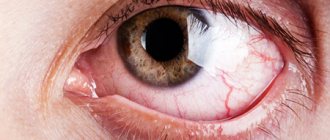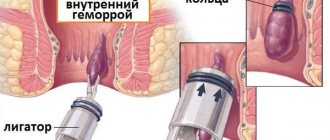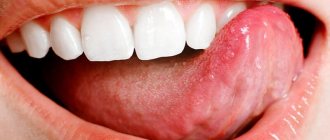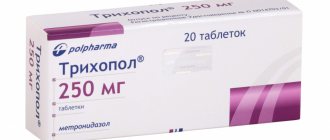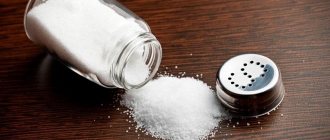Fresh or cooked pineapple contains many trace elements and vitamins, its consumption has a positive effect on health. The fruit can be eaten raw, canned, used for preparing meat, confectionery, and juices. But sometimes after fresh pineapple, especially eaten in large quantities, the tongue and lips sting. Let's figure out why it stings in the mouth.
Pineapple allergy: causes
Pineapple contains vitamins C, A, B, potassium, iron, manganese, sodium, phosphorus. This is a low-calorie fruit, rich in coarse fiber, so it is often used for weight loss. In addition, it contains bromelain, an enzyme that promotes the digestion of animal proteins. Moderate consumption of pineapple has a beneficial effect on intestinal motility, the functioning of the cardiovascular system, and the removal of excess fluid and toxins from the body.
However, despite the health benefits, eating this fruit can lead to unpleasant symptoms of an allergic reaction. What causes a pineapple allergy?
- Exposure to chemical compounds. Like most exotic fruits, pineapples undergo additional processing to extend their shelf life. In addition, the fruits are often harvested green. Ripening occurs in special chambers where the fruit is treated with chemicals. This can lead to allergies.
- Heredity. The tendency to food intolerance can be inherited if close relatives of the allergic person suffer from the same problem. For example, if one parent has a fruit intolerance, the probability of passing on the allergy predisposition to the child is about 30%.
- Allergy to other exotic fruits. If a person has previously had an atypical reaction to citrus fruits, kiwi, mango and other tropical fruits, it is recommended to replace them with local fruits (high in vitamin C, the presence of natural dyes).
In addition to the above reasons, allergies can develop as a result of living in an environmentally polluted area, smoking, general exhaustion of the body, or weakened immunity.
Why a healthy fruit becomes dangerous
Pineapple contains a large amount of fruit acids, which, when they get on the oral mucosa, can cause discomfort.
You can especially often encounter this problem if you eat fruits that have not reached the required level of ripeness. Pineapple contains a large amount of the enzyme bromelain, the action of which is aimed at dissolving proteins and accelerating blood flow, so if you eat a lot of fruit, there is a possibility of a burn on the oral mucosa.
The human body is made of protein, so pineapple and pineapple juice try to “digest” it. This is the main reason why pineapple stings the tongue, causing ulcers to form on the lips of those who overdo it with eating such an interesting fruit. This is where the expression “pineapple eats us when we eat it” comes from, because the fruit really eats away the mucous membrane, but this is not dangerous for the body.
Pineapple allergy: symptoms
If a person has a tendency to allergic reactions to other exotic fruits, he should definitely know how an allergy to pineapple manifests itself. This will help you react in time to the appearance of suspicious symptoms, prevent the development of health-threatening conditions and begin appropriate treatment.
An allergic reaction to pineapple can be represented by one or more disorders:
- From the gastrointestinal tract: nausea, vomiting, bloating and abdominal pain, indigestion.
- From the mucous membranes: swelling, tingling and itching of the mucous membranes (for example, an allergy to pineapple is often localized on the tongue, lips and corners of the mouth). Cough, lacrimation, and allergic rhinitis may also develop. Of particular danger is the possibility of developing laryngeal edema, since this allergy symptom can lead to suffocation.
- From the skin: rash, redness, swelling, itching.
- Sometimes dizziness and loss of consciousness, chills and increased body temperature, and the development of anaphylactic shock may occur.
How to reduce the burning sensation
Let's figure out what to do if your tongue burns after eating pineapple. Although the discomfort goes away on its own over time, you can speed up the process a little. The following will help:
- rinse your mouth with water;
- eat a piece of butter;
- drink a few sips of milk.
To prevent a tingling sensation in your mouth from pineapples, you need to follow the following rules when purchasing and eating the fruit:
- The lips and tongue are corroded by the large presence of acids and bromelain, the highest concentration of which is observed in unripe fruits. To select a ripe fruit, you need to press on it. It should feel elastic under your fingers, not hard. The color of ripe fruit should be brownish, golden or straw-colored with a red or orange tint, but not green or yellow.
- Bromelain is concentrated in the center of the fruit; it must be removed and not used for food. The peel contains a lot of enzyme; it must be removed without fail, and not cut into slices along with it.
- You need to eat pineapple in small portions to reduce the amount of negative substances in your mouth at a time.
- If the oral mucosa is sensitive to even a small amount of pineapple, then the fruit should not be eaten raw. You can cook it as a main dish or add it to others. Heating and combining with other ingredients will eliminate the likelihood of unpleasant sensations. Chili pepper is especially helpful in neutralizing bromelain.
- If there is no desire or opportunity to cook pineapple, then in any store you can find canned fruit that 100% does not cause burns to the mucous membrane.
- Proper cleaning of the fruit will help reduce the amount of bromelain when consumed. To get to the edible part, first peel the pineapple, being careful not to let it touch the flesh, as the peel contains a lot of enzyme. The eyes are cut out and the middle, which also contains the enzyme, is removed. The resulting pulp is cut into pieces.
We recommend that you read Garlic during pregnancy
Following the recommendations will help you eat tasty and healthy pineapples without pain.
Allergy to pineapples: treatment
The best option is complex therapy. It usually includes taking antihistamines and decongestants, treating the skin with anti-inflammatory creams and ointments, and removing allergens from the body using sorbents.
In order for allergy treatment to be as effective as possible, it is advisable to exclude certain foods from the diet: sea fish and seafood, cow's milk, red fruits and vegetables, nuts, citrus fruits, yeast, fermented cheeses.
To reduce skin allergy symptoms, you can use La Cree cream for sensitive skin. It fights skin hyperemia, itching and rashes. The product contains safe natural ingredients: string, walnut and violet extracts, panthenol, bisabolol and avocado oil. Due to the absence of hormones in the cream, it can be used for a long time - even for children from birth and pregnant women.
Contraindications for eating
Eating the fruit is contraindicated for the following problems inside the mouth:
- the presence of cracks and scratches on the oral mucosa;
- carrying out a procedure to remove tartar;
- professional teeth cleaning;
- the presence of inflammatory processes in the oral cavity and pharynx;
- damage to tooth enamel;
- damage to teeth (cracks, holes).
Also, the fruit should not be used for food if there is mechanical damage to the mucous membrane.
Clinical researches
Clinical studies have proven the effectiveness, safety and tolerability of the products. The products are suitable for daily care of children's skin with mild to moderate forms of atopic dermatitis and during remission, accompanied by a decrease in the quality of life of patients.
Cream for sensitive skin reduces itching and irritation, relieves redness of the skin, moisturizes and gently cares for it.
Sources:
- Kamasheva G.R., Khakimova R.F. Valiullina S.A., Methods for assessing the severity of atopic dermatitis in young children, Dermatology journal, 2010
- Kovyazina N.A., Fedosimova N.A., Illek Ya. Yu. Diagnosis of atopic dermatitis in young children, Vyatka Medical Bulletin, 2007
- Smirnova G.I. Managing the course of the disease: atopic dermatitis in children, Russian pediatric journal, 2014
Diagnostic features
It is important to distinguish glossalgia from organic diseases of the tongue that develop as a result of injuries, neuralgia and neuritis. The doctor will also make sure that there are no bite defects. The main diagnostic criterion for glossalgia is the discrepancy between the sensations of the intensity of the impact. In addition, visible changes in the tongue and mucous membranes are almost completely absent.
In case of injuries, the pain has a clear localization and does not spread beyond the boundaries of the lesion. With neuralgia, sensations occur briefly in the area of innervation of the nerve. With neuritis, pain most often appears only on one side, and is also accompanied by sensory disturbances.
When to see a doctor
If this is not the first time a burning sensation in the mouth has occurred, and the culprit is NOT spicy food, then this is a reason to consult a doctor. Based on the above reasons, doctors of various specialties can deal with this problem. First of all, these are therapists. A general practitioner, based on the history taken, will be able to exclude a number of pathologies and refer the patient to the right specialist. Among them are dentists, endocrinologists, infectious disease specialists, gastroenterologists and others.
Important! During the interview, the doctor should tell you about all concomitant diseases, lifestyle and medications you are taking. This information will help the doctor rule out a number of diseases and quickly identify the cause of the symptom.
Preventive measures
Preventive measures against a “burning” tongue include the following:
- Proper dental and oral hygiene.
- Clean your tongue daily with a special cleaner (but not with a brush!).
- Compliance with drinking regime.
- Avoiding allergens, in particular food ones.
- Controlling blood sugar levels.
- Timely treatment of the gastrointestinal tract.
- Compliance with the principles of balanced nutrition.
- Regular preventive examinations with a dentist (at least 2 times a year).
What to do if your tongue hurts?
If you experience pain in any area of the tongue, you should make an appointment with a dentist or otolaryngologist. Before going to the clinic, it is necessary to exclude the presence of minor injuries or accidental burns, for which it is important to leave time to heal. If the cause of the pain was a cosmetic puncture, you must strictly adhere to all recommendations and carefully monitor oral hygiene. If your tongue hurts without punctures or wounds, you should consider one of the following options:
- Carrying out dental procedures
with surgery: anesthesia and medical procedures cause swelling of the gums and a small area of the tongue. The discomfort usually goes away as the swelling decreases.
- Inflammatory and fungal diseases of the oral cavity
eliminated by taking antifungal agents and maintaining constant cleanliness in the mouth.
- Inflammatory and infectious diseases of the upper respiratory tract
: sore throat, sore tongue - signs of inflammation of the tonsils or submandibular lymph nodes. The otolaryngologist will draw up a treatment regimen with the prescription of antiviral, painkillers and antihistamines.
Are you worried about short-term or constant pain in different areas of the tongue?
Try to find out the causes of discomfort, remember cases of injury or accidental burns. If pain continues to bother you, you should immediately consult a therapist, dentist or otolaryngologist. An experienced doctor will conduct all the necessary studies and take tests to accurately determine the diagnosis and create an effective treatment regimen. This article is for informational purposes only, please consult your doctor for details! Ask your doctor about contraindications and side effects.
